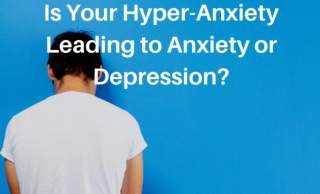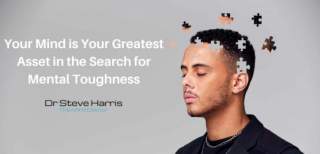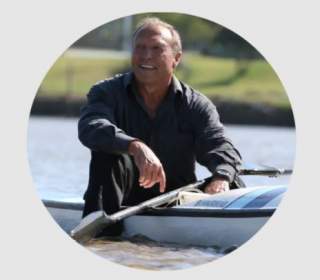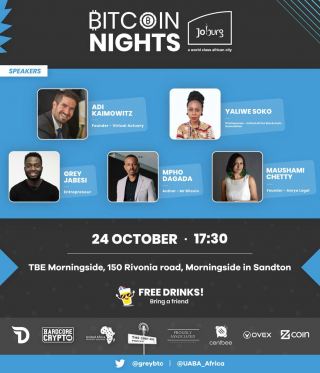Can Your Hyper-Anxiety Lead to Depression?
In his Mental Toughness series, Dr Steve Harris, motivational speaker in South Africa, recently discussed that the drivers for hyper-anxiety are usually the negative legacy emotions of shame and guilt. These self-defeating emotions are triggered opportunistically after you experience the consequences of trauma.
Tragically, hyper-anxiety is also associated with constant rumination about negative events in your past or about events that could happen in the future. This causes you to perpetuate depressive behaviours because you find new, imagined problems to be anxious about.
In this state your reasoning capacity is impeded, and you become governed by a melodramatic, as opposed to a fact-based world view. Thus, instead of rationally recognising and logically analysing your feelings of regret or remorse caused by the trauma that could catalyse a change in your behaviour, you end up searching for reasons to justify your feelings of guilt and shame. The result is blaming others or being angry with them as you try to navigate a constant sense of crisis.
People suffering from hyper anxiety tend to mix up what is a frightening or perceived threats, with a dangerous and real threat. This results in a conflict between the life they expected and the one they have and is mostly accompanied by a notion that they have less, if not – no choices. They often see bad over good and become prone to conspiracies while blaming others. They then struggle to accept responsibility. Their flight or fight response is on high alert which causes exhaustion and burn-out.
Substance Dependence Behaviour
In such circumstances, your brain depends on a pain managing or recreational substance that you see as a medicating, soothing or a stimulating solution – without considering that the substance may be problematic. The misuse of cell phones and social media dependency are also included in dependency behaviour.
The overuse of substances is particularly hazardous when combined with a predilection for addiction. You often become righteous, polarized, irrational, have mood swings, renewed anxiety, fear, distrust, and extreme bouts of anger. When challenged about irrationality, you revert to denial and counter accusations. Anti-social behaviours like lying and stealing manifest and personal hygiene deteriorates.
Extreme Grief can Contribute Towards Depressive Behaviour
During a state of severe sadness, you may experience anhedonia – a lack motivation, a feeling of being left behind, experience chronic remorse, loneliness, irrational hopelessness, and despair. You become a ‘baby doomer’ dominated by the belief that you have lost touch with happiness.
In my opinion, the concept of chasing happiness opens a can of worms. Firstly, we often confuse excitement and goal achievement with happiness. Secondly, the suffering and sacrifice endured in the quest for this goal achievement highlights the opposite, i.e., it magnifies what you are not achieving.
You need to allow room for reflecting on the role of lofty goals and consider cutting back on your expectations if they are at the root of your suffering. Ralph Waldo Emerson wrote, “the purpose of life is not chasing happiness. It is to be useful, honourable and compassionate”.
Should Happiness be our Default Position?
Please follow this link to continue reading this article.
Mental Toughness - Your Mind is Your Greatest Asset
The trick or secret to increasing mental toughness is that there is neither trick nor secret. Dr Steve Harris, the Mind Doctor and motivational speaker, has a healthy skepticism for anything claiming a secret. Quick fixes and oversimplified solutions to achieving success or significance insult our intelligence. Instead, he favours a planned approach by systematically practicing and scaffolding the seven mental toughness components. He firmly believes that our most tremendous potential lies in our minds and is our ultimate asset.
When we improve our mental toughness, we move away from irrational fears, illogical beliefs, destructive addictions, superstitions, and other forms of self-destruction. With mental toughness, you can consistently give your best performance, regardless of what is going on within or around you. In this way, you can become the best possible version of yourself.
A Definition of Mental Toughness
The definition of mental toughness goes beyond the limiting description of a killer instinct or a high pain and panic threshold. Dr Steve defines it as the ability to prepare for consistent performance by managing your mind so that it is not distracted and directing your energy to the right place, at the right time, for the right reason. “Strong minds suffer without complaining; weak minds complain without suffering.” - Lettie Cowman.
Signs That you are Mentally Tough
- You simultaneously have ‘fire in the belly and ice in the brain.
- You develop a self-authoring mind that balances your socially conditioned mind.
- You adapt and improve each mental toughness component by 1%.
- Your concentration is fuelled by passion leading to conditional optimism.
- Your composure transcends volatility, uncertainty, complexity, and ambiguity.
- You apply controlled aggression through increasing energy, intensity, and willpower.
- You express confidence through supreme self-belief without arrogance.
- You take calculated risks using curiosity with the courage to innovate and improvise.
- You pursue competence and wisdom through learning, unlearning, and relearning.
- You display commitment; neither trapped in gritting nor quitting – you reinvent.
- Your mental toughness mantra is "I have the capacity to absorb pain and loss, and move on.
“The resilient brain can withstand ongoing trauma, think differently, stave off brain-related illnesses including depression, and retain cognitive memory for peak performance.” (“Keep Sharp: How to Build a Better Brain at Any Age – Sanjay Gupta 2021)
Motivational Course For Corporates
Dr Steve offers a motivational course for organisational groups during these tough business conditions, which consists of ten forty-five minute modules, blending skills associated with motivation to help you discover marginal gains in your performance. These include topics such as;
- Going from fragile to agile by identifying and magnifying previously hidden personal differentiators. This enables you to accelerate ahead of current problems into a future where you are more competitive and fulfilled.
- Improving your mental and physical abilities through the application of critical thinking, holistic wellness, fostering teamwork, managing conflict and aligning your culture with the organisational culture.
- Creating new competitive advantages that help manage struggles as well as set new benchmarks through the seven components of mental toughness (concentration, composure, controlled aggression, confidence, calculated risks, competence and commitment)
Dr Steve has helped many organisations develop competitive strategic differentiators along the lines of leadership, change management, teamwork, sales, service, and wellness. Each of these is enhanced by having staff who become mentally tougher.
Contact Dr Steve Harris to find out more about his Motivational and Team Building Courses.
Surviving To Thriving - A Blue Oceans Strategy
I am using Chan Kim’s book, Blue Ocean Strategy (2005), as the framework for a surviving to thriving guide. Kim’s blue oceans’ metaphor defines a blue ocean as a less contested market space. In this space, the opposition is not as relevant, and you thrive (Kim, 2005). I believe one can apply blue ocean strategies at an individual level as well as a business one.
Kim explains that we primarily operate in highly contested Red Oceans, whereas in Blue Oceans, there is less competitor activity. He uses four quadrants to categorise what action to take to exit Red Oceans and enter Blue Oceans. I will give some of my examples of each.
The first category to get out of red oceans – eliminate
What must you eliminate to get out of red oceans? I suggest starting with energy leaks from poor wellness. Then eliminate poor customer experiences. Finally, try treating customers like VIP’s – which means treat them as they would like to be treated as opposed to the old mantra – treat them like you would like to be treated. This requires you to eliminate bureaucracy by reducing red tape and providing more red carpet.
The second category to get out of red oceans – reduce
I firstly suggest reducing judging, complaining, blaming, and gossiping. For the second point, I want to draw on the potential hazards of social media acting as an energy leak. I gleaned this from the movie “The Social Dilemma”. If we become aware of this concern associated with social media, we can save a lot of energy floundering around in red oceans and spend more accessing blue oceans. In the movie, Tristian Harris explains how our energy could get drained by the attention model used by social media sites. They use these to keep us on their site and in so doing improve their advertising revues.
Note, there is nothing intrinsically sinister with their approach; the problem lies in our lack of awareness of their ever refining, personalised algorithm to keep us mesmerised and spend more time on their social media site.
The next point to become aware of is that social media inevitably blurs facts because it has little if no editorial integrity nor sanction like an official newspaper or news channel has – of course, I acknowledge there is bias in everything we are presented in all domains, including official news outlets. They are, however, subject to rules. Therefore, know that when you are on social media sites, an algorithm is monitoring what you are interested in to feed to you reports or videos that follow a similar theme. So most things you view on, say, YouTube are suggested by the algorithm and not something you looked for in the first instance.
Once you are caught up in the flow of the algorithm – or dare I say caught up by our addictive nature, you probably experience increased anxiety, hostility, and nostalgia. You may even lose trust in science, as you reinforce your confirmation bias with “evidence” from half-truths fed to you by an algorithm that has got to know more about you than your closest friends and family know.
After a while, it is equally likely you feel enlightened and encouraged by this evidence whilst you will start considering others “sheeples” who are under the influence of an enemy like a world government, Bill Gates or any others uncovered by your social media journey.
Finally and hopefully, you become aware that it is you who may have been mind-captured and are increasingly suspending your critical thinking whilst wandering into a polarised cognitive bubble of intolerance – even willing to alienate friends, as the boundaries of your issues harden.
The third category to get to blue oceans – raise
What must you raise to enter blue oceans? My first suggestion is to improve teamwork, partnerships, and communication. Secondly, express more thankfulness, inspiration, empathy, and mental toughness. Finally, develop new knowledge and skills, e.g. including multiple perspectives and critical thinking. Innovating and improvising to do more things faster and better; becoming techno-savvy and managing the mess – not limited to your own.
The fourth category to get to blue oceans – create
To enter blue oceans, I suggest you create a strategy for surviving to thrive, e.g. one that aligns with national priorities, research, stakeholders’ problems and brings your values to life. In addition, it bonds staff into an organisational culture through its shared mission and values. It embraces multiple bottom lines, helps you flow around VUCA (Volatility, Uncertainty, Complexity and Ambiguity) and adapt faster than the opposition to a changing context. In this way, we adjust to the reality of ever-increasing instability.
It has a plan B to give you global sustainability and risk plans that cater to black swan shock events. In addition, you identify how to create stakeholder commitment to the strategic plan, accountability for results and ethical behaviour. Finally, it maintains current value (what we should do) plus imagines, then researches new ideas from which you invent new values (what we could do) with differentiators that yield unique competitive advantages.
This email address is being protected from spambots. You need JavaScript enabled to view it. and let us know if you have been mind-captured by social media feeds.
Motivational Speaker, Dr Steve Harris, has been studying performance for thirty years of which fifteen have been devoted to performance improvement through an integrated mind and body approach. Steve has the business knowledge and skills to view a wide range of problems with a perspective broader than the established patterns that entrench thinking and close minds.
The Africa Digital Entrepreneurship Event Live in Johannesburg
The main challenge entrepreneurs are facing in Africa is not the lack of great ideas but the fear of turning ideas into reality. With unemployment in South Africa at an all time high, more and more people are trying to make their own way in the economy.The Africa Digital Entrepreneurship events are about turning dreams into action. The series of events aims to enable digital entrepreneurship and the upcoming ‘Bitcoin Nights’ meet-up in Johannesburg on Thursday, 24 October at The Business Exchange Morningside, 150 Rivonia Road is a must-attend event for anyone interested in the digital assets space.
Business networking is the fast track to success and event sponsors such as Zcoin and OVEX believe that entrepreneurship is the way forward for South Africans. Jonathan Ovadia, Co-Founder and CEO at OVEX, a company helping to create an open, trustless and more efficient financial system says “the vision is to break down the barriers that prevent people from entering the traditional financial system. We believe that wealth-creating investment opportunities shouldn’t only be accessible to the wealthy, but should be available to all.”
The event is facilitated by the United Africa Blockchain Association (UABA), a non-profit leading blockchain education and adoption in sub-Saharan Africa. With the help of sponsors, The Africa Digital Entrepreneurship Series’ goal is to provide relevant content on business and technology that helps people learn and grow professionally and personally.The meet-ups provide a conducive environment for networking and ideas exchange, and attendees can look forward to free drinks, giveaways and prizes. Other sponsors include Divi, which makes it possible for anyone to participate in securing blockchains through their one-click masternodes, challenging the notion that you need technical expertise to participate in the blockchain ecosystem. Centbee, a digital wallet company that believes in the power of people to create an abundant future and æternity, a new blockchain technology, designed to deliver efficiency, transparent governance and global scalability are also part of the sponsors who see huge potential in Africa and are actively championing the digital asset revolution.
The theme of the Johannesburg event focuses on the Digital Asset Economy and anyone interested in tech is welcome to attend FREE of charge and benefit from the networking opportunity and inspiring discussions. Speakers will include Adi Kaimowitz, President and CEO of Virtual Actuary, Maushami Chetty of Novate Legal; Mpho Dagada – Commisioner, 4th Industrial Revolution at the SA Presidency; and Yaliwe Soko, Chairperson at UABA.The event aims to inspire participants to increase their appetite for entrepreneurship and get more knowledgeable about the growing trend in digital assets. Africa is a market ready to adopt new technology but lack of emphasis on digital entrepreneurship opportunities in Africa might result in missed economic opportunities for the next generation.
“It’s important to encourage the youth to explore the option of entrepreneurship as a career path instead of waiting for employment opportunities which may never be available to them.Initiatives such as the Africa Digital Entrepreneurship Series focus on creating awareness and demystifying what it means to run a digital enterprise,” said Heath Muchena, Founder of Proudly Associated, a company working with companies developing blockchain-powered technologies that have use cases focusing on emerging economy development to gain adoption across the continent.Whether you’re a student, professional or fledgling entrepreneur, this event will provide valuable insights and an opportunity to learn, grow, network and be inspired all in one. The meet-up will be a relaxed, no-suits-or-ties sort of event so expect to learn and be entertained.
"The Africa Digital Entrepreneurship Series connects up-and-coming entrepreneurs in all fields. It’s a fantastic way for those interested in tech and online businesses to build a solid support network,” said Grey Jabesi, host of the Grey Ave Podcast, Africa’s top rated podcast which focuses on survival skills for the 21st century.
By attending this FREE event, attendees will:
Learn about new frontiers in digital innovation
Find out how to leverage technology to broaden participation in the global digital economy
Boost digital asset knowledge including digital asset acquisition and management
Learn how to build a fully remote businessDiscover mentorship opportunities
Interact with other entrepreneurs and build business networks
Meet like-minded innovators and go-getters
Be empowered!
GET TICKETS HERE: https://www.eventbrite.com/e/africa-digital-entrepreneurship-series-tickets-77802321839
Event details:
Admission: FREE (Limited space so make sure you get there early.)
Date: Thursday, 24 October, 2019
Location: The Business Exchange, Block 4, 150 Rivonia Road, Morningside, Sandton, 2057 Johannesburg.
If you want to sponsor this event or for more information, contact:This email address is being protected from spambots. You need JavaScript enabled to view it. or This email address is being protected from spambots. You need JavaScript enabled to view it.
A Teacher Changed My Life - NEW BOOK
Darren August takes us through a few of the experiences and relationships with his own teachers, growing up, which changed his life. He retells the stories of others too, and will surely awaken your school memories. As an experienced motivator, the book leaves not only teachers encouraged to inspire others, but everyone else will feel inspired to reach their potential and live their calling too.
This book offers a few giggles as we see things from the perspective of a child, but is mostly introspective of the role we play in the way in which children perceive themselves. Teachers and parents will find it particularly motivating – with practical ways you could change young lives, for good.
This book is a great resource. It’s a celebration of teachers, as instrumental parts of society – it will definitely have you thinking of the teachers that have impacted your life. Scheduled for release in October 2014 – this book is set to motivate every South African reader to once again restore the dignity of ‘The Noblest Profession”.
About the Author
Darren August is the Founder and CEO of Dazz Consulting – A dynamic training organisation committed to seeing people thrive and succeed.He is a Corporate Trainer, Motivational Speaker, Life Coach, Entrepreneur, Radio Host & former Lecturer.He is passionate about Life; People and Education and together with his wife – Arlene, they believe in maximizing every opportunity to impact the lives of others.
To order, for interview requests and other queries, email This email address is being protected from spambots. You need JavaScript enabled to view it.






